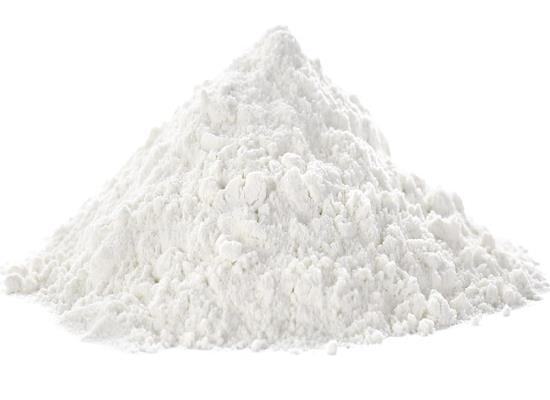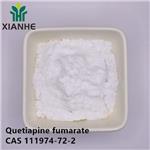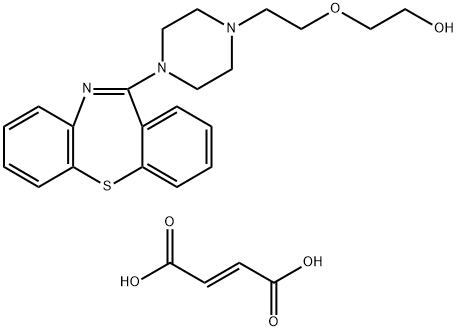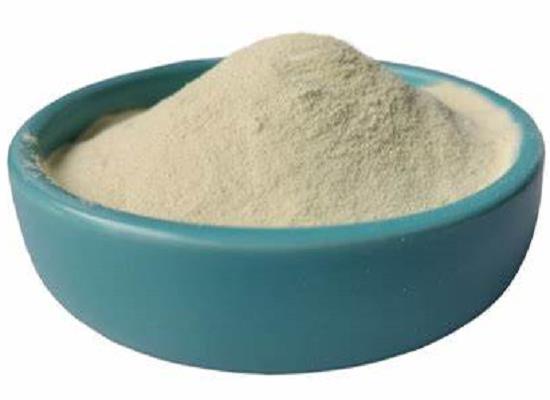Quetiapine Fumarate: Pharmacological Activity and Clinical Applications
General Description
Quetiapine fumarate is an atypical antipsychotic with diverse pharmacological activities, primarily used to treat mood and anxiety disorders, psychotic conditions, and insomnia. Recent studies suggest its potential in pain management and neuroprotection, particularly in models of global cerebral ischemia and experimental autoimmune encephalomyelitis, which simulate stroke and multiple sclerosis, respectively. Quetiapine fumarate has shown efficacy in reducing myelin breakdown, preserving oligodendrocyte health, and alleviating depression and anxiety-like behaviors associated with these conditions. The mechanisms of action involve modulation of oxidative stress and regulation of neurotrophic factors, promoting remyelination and cognitive health. In clinical applications, quetiapine fumarate is effective for managing psychiatric symptoms in multiple sclerosis, with research indicating that it may outperform traditional antidepressants regarding mood disorders. Additionally, it effectively addresses sleep disturbances common in multiple sclerosis, thanks to its sedative properties. Despite promising preliminary data in pain management, further investigation is needed to establish its effectiveness in treating pain specifically related to multiple sclerosis.

Figure 1. Quetiapine fumarate
Pharmacological Activity
Quetiapine fumarate is recognized as an atypical antipsychotic that exhibits a wide range of pharmacological activities. This compound is primarily administered as a fumarate salt, which enhances its therapeutic efficacy. Quetiapine fumarate has demonstrated significant benefits across various mental health conditions, including mood disorders, anxiety disorders, psychotic disorders, and insomnia. Notably, its utility extends beyond psychiatric applications, as emerging studies indicate that quetiapine fumarate may also have applications in pain management. Moreover, quetiapine fumarate has garnered attention for its potential neuroprotective and remyelinating properties, particularly in animal models of demyelination, such as those induced by cuprizone and global cerebral ischemia. 1
Efficacy in Global Cerebral Ischemia and Experimental Autoimmune Encephalomyelitis
The effects of quetiapine fumarate have been studied in the context of global cerebral ischemia, a model that mimics stroke and its subsequent implications, including vascular depression in late life. Research has shown that quetiapine fumarate, when administered in a regimen over two weeks, significantly mitigated myelin breakdown and oligodendrocyte loss following ischemic events. This compound not only improved the physiological outcomes but also alleviated depression and anxiety-like behaviors associated with ischemia, enhancing overall cognitive function. Furthermore, in models of experimental autoimmune encephalomyelitis, which simulate multiple sclerosis, quetiapine fumarate treatment resulted in reduced clinical symptoms, preserved myelin integrity, and increased oligodendrocyte presence, providing critical evidence of its efficacy in immune-mediated demyelination scenarios. 1
Mechanisms of Action
The mechanisms through which quetiapine fumarate exerts its protective effects are multifaceted. One significant pathway involves the modulation of oxidative stress. Quetiapine fumarate enhances the activity of superoxide dismutase, a vital antioxidant enzyme, thus reducing oxidative damage. This activity is particularly beneficial in conditions characterized by high oxidative stress, such as multiple sclerosis and demyelination. Additionally, quetiapine fumarate has been shown to regulate neurotrophic factors, including brain-derived neurotrophic factor, which play essential roles in remyelination and neuroregeneration. By upregulating these neurotrophic factors, quetiapine fumarate not only aids in the recovery of neural structures but also supports overall cognitive health, reflecting its potential for treating patients affected by demyelination-related disorders. 1
Clinical Applications
Multiple Sclerosis
Quetiapine fumarate has shown promise as an effective treatment for several psychiatric symptoms commonly associated with multiple sclerosis. Depression is notably prevalent among individuals with multiple sclerosis, with lifetime prevalence rates ranging from 22% to 54%. This condition not only diminishes the quality of life but also contributes to poor adherence to treatment regimens and heightened suicide rates within this population. Quetiapine fumarate, due to its strong affinity for various adrenergic and serotonergic receptors, demonstrates considerable efficacy in managing mood disorders, including major depression and anxiety. Research has consistently shown that doses of quetiapine fumarate between 150 and 300 mg per day can surpass the effectiveness of traditional antidepressants in treating both unipolar and bipolar depression. Additionally, quetiapine fumarate’s lower affinity for D2 receptors minimizes its potential side effects, making it a safer option for multiple sclerosis patients who may already face mobility and neurological challenges. 2
Sleep Disorders
Sleep disturbances are prevalent among individuals with multiple sclerosis, affecting approximately 24% to 50% of patients. These disturbances can exacerbate fatigue, neuropathic pain, and other psychiatric conditions, such as depression and anxiety. Quetiapine fumarate, in both immediate release and extended release formulations, possesses strong sedative properties that can help alleviate insomnia. Its relatively short half-life of 6 to 7 hours allows for administration before bedtime without significant next-day drowsiness. Studies have demonstrated that quetiapine fumarate is effective in treating primary insomnia and insomnia associated with other medical conditions, including major depression. Improved sleep quality can decrease the risk of suicide and enhance the overall effectiveness of depression treatment, which may be linked to the rapid onset of quetiapine fumarate's antidepressant effects. 2
Potential Pain Management
Chronic pain is a significant and pervasive concern for individuals living with multiple sclerosis, with studies indicating a prevalence rate of approximately 63%. This chronic pain manifests in various forms, including headaches, neuropathic extremity pain, and painful muscle spasms, all of which can severely diminish quality of life and hinder daily functioning. Quetiapine fumarate may present potential benefits for managing these pain syndromes, as it shares mechanisms with other antidepressants and antipsychotic medications known for their analgesic properties. While preliminary evidence suggests that quetiapine fumarate may be beneficial in treating migraines and alleviating symptoms associated with fibromyalgia, comprehensive research is still required. Larger, randomized, controlled trials are essential for substantiating these initial findings. Overall, determining the effectiveness of quetiapine fumarate in addressing pain specifically related to multiple sclerosis remains a critical focus for future research, as it could significantly expand its therapeutic applications beyond neuroprotection and psychiatric treatment. 2
References:
[1] M RIBOLSI I A R V Magni. Quetiapine fumarate for schizophrenia and bipolar disorder in young patients.[C]//46 8. 2010. DOI:10.1358/dot.2010.46.8.1500050.[2] SIMON ZHORNITSKY. Quetiapine Fumarate for the Treatment of Multiple Sclerosis: Focus on Myelin Repair[J]. CNS Neuroscience & Therapeutics, 2013, 19 10: 737-846. DOI:10.1111/cns.12154.
You may like
See also
Lastest Price from Quetiapine fumarate manufacturers

US $0.00/kg2025-05-08
- CAS:
- 111974-72-2
- Min. Order:
- 1kg
- Purity:
- 0.99
- Supply Ability:
- 1000kg

US $10.00/ASSAYS2025-05-04
- CAS:
- 111974-72-2
- Min. Order:
- 1ASSAYS
- Purity:
- 99%
- Supply Ability:
- 10 ton


